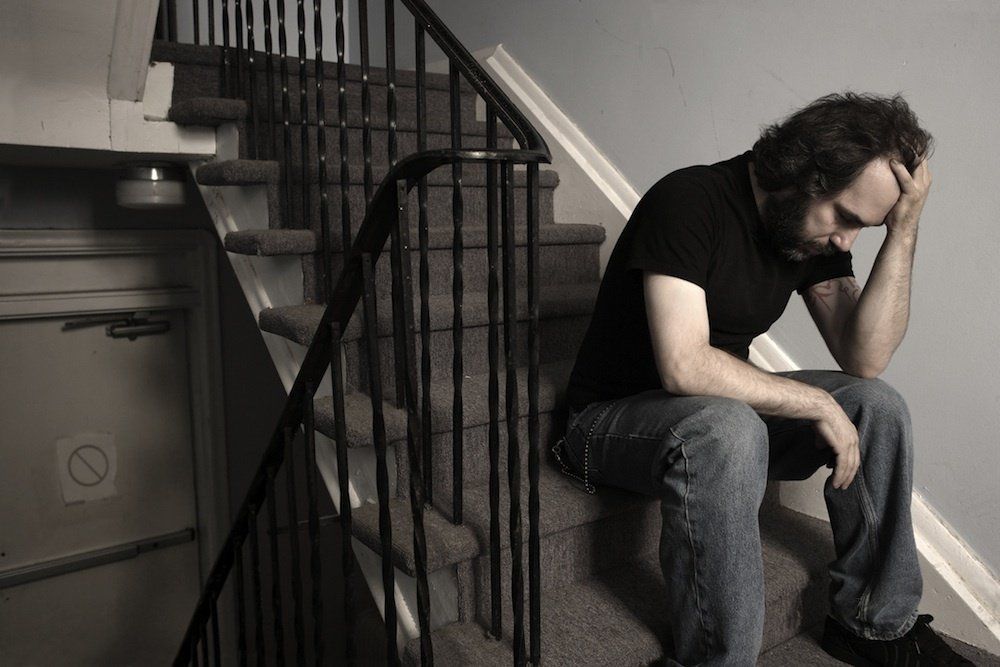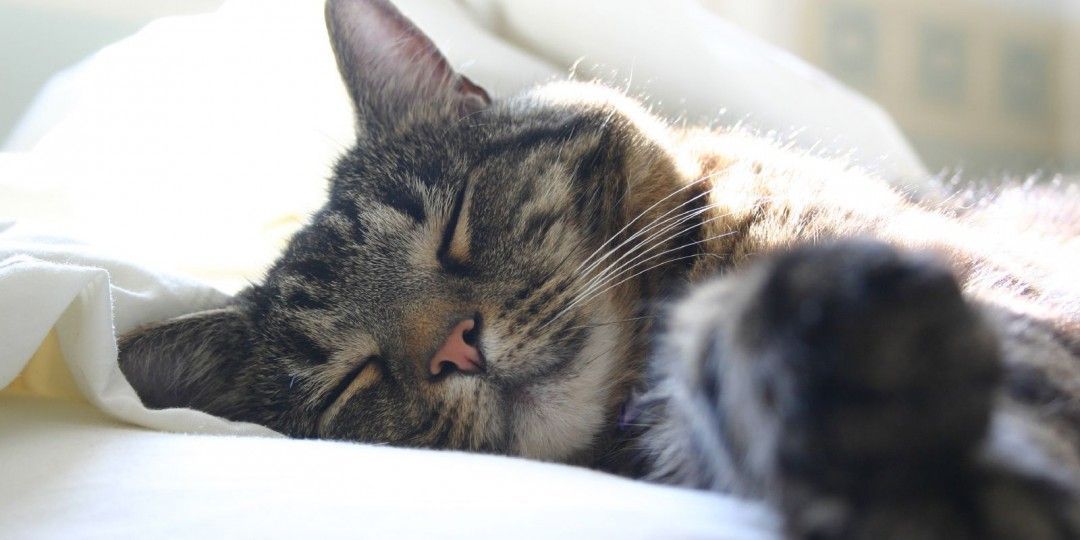Signs of Depression in Men
It's not simply sadness. These feelings can also signal a mental health issue in men.

Sometimes depression, particularly male depression, does not appear as you might expect. You're just receiving part of the story if you have a mental image of someone who is always sad. Depressed men are just as likely to be angry, aggressive, or bored as they are to be unhappy—and they frequently fail to recognize these symptoms as markers of mental illness. Male depression is often undetected and can be a significant problem for men of all ages for this reason and others connected to our societal perception of manliness.
Depression is characterized by emotions of melancholy or despair, suicidal thoughts, restlessness, and a loss of interest in things like job and family. However, each person's situation is different, and men and women might experience depression in quite different ways. According to the National Institute of Mental Health, depression affects 7.1 per cent of individuals in the United States, but it affects 8.7 per cent of women. It's only 5.3 per cent for males, who are less inclined to seek help, a figure that healthcare providers feel understates the total number of cases.
Signs of Depression in Men
A variety of factors can cause depression in men and women. Women are more inclined than males to talk about physical and mental health issues and express their emotions; therefore, many women with depression appear down. On the other hand, men are more prone to conceal their feelings and appear angry rather than depressed. Men are also more prone than women to experience sleep problems. While women with depression are more likely to attempt suicide, men are more likely to commit suicide because they choose more lethal means.
Low mood is the most common symptom of male depression. That can be explained by the fact that an angry or impatient mood could obscure it. Problems sleeping or eating can be readily concealed. It's also possible that you'll have difficulties concentrating. Many of these symptoms can be hidden by the use of substances. People may consume a substance and then dismiss the symptoms as unimportant.
To receive a diagnosis of depression, a person must show symptoms for at least two weeks. Common signs of depression include:
- Feelings of sadness or worthlessness
- Loss of interest in activities you once enjoyed
- Weight loss or gain
- Trouble sleeping or sleeping too much
- Fatigue and feeling tired
- Feeling worthless or hopeless
- Problems with concentration
- Suicidal thoughts or preoccupation with death
- Withdrawing from family and friends or becoming isolated
For men, in particular, these additional symptoms of depression in men can be common:
- Anger, irritability, or aggressiveness
- Feeling anxious, restless, or on edge
- Problems with sexual desire and performance
- Engaging in risky behaviour
- A need for alcohol or drugs
- Inability to meet the responsibilities of work, family, or other obligations
- Physical aches, back pain, headaches, cramps, or digestive problems.
Physical symptoms, ironically, might sometimes be a positive thing, as men are more inclined to seek medical assistance for a physical ailment than for mental health issues.
Types of Depression
There are a variety of types of depression. The most common ones for males are:
Major Depression (MD) is the classic depression type, characterized by an all-consuming bad mood and a loss of interest in activities, family, and friends. Symptoms might be so severe that they prevent a guy from working, studying, sleeping, eating correctly, or enjoying life.
In some circumstances, severe depression may be accompanied by delusions (fixed, incorrect beliefs) or hallucinations (hearing or seeing things that aren't actually there). These psychotic symptoms are frequently depressing in nature.
Persistent Depressive Disorder (PDD), also known as dysthymia, is characterized by a depressed mood that lasts longer than two years. Major depressive episodes may occur in people with this illness and periods when symptoms are less severe.
Seasonal affective disorder (SAD) is a type of depression that manifests itself during the winter months when there is less natural sunlight. They may also sleep more, gain weight, or isolate themselves from others. This mental health problem improves in the spring and summer, but it resurfaces in the winter.
Minor depression: Symptoms of minor depression are comparable to those of major depression or persistent depressive illness, but they are less severe and endure for a shorter time.
Bipolar disorder is classified as a kind of depression by the National Institute of Mental Health, despite its differences from regular depression. Men with bipolar disorder endure mood swings that are exceedingly depressing. This bipolar sadness, on the other hand, may be interspersed with episodes of mania, during which people may experience exceptionally high levels of energy.
What causes male depression?
Depression is one of the world's most common mental illnesses. According to the American Psychiatric Association, one out of every six people (16.6 per cent) will suffer from depression at some point in their lives, and doctors believe there are several risk factors.
Men who have had a family history of depression are more likely to develop depression themselves, implying that hereditary factors may play a role. It can often develop due to other health difficulties in older men, such as diabetes, cancer, heart disease, or Parkinson's disease, and depression can exacerbate the symptoms of other medical diseases. Depression can occur as a side effect of medications used to treat other health problems.
Stress, trauma, significant life changes, the loss of a loved one, or a challenging relationship can all cause depression in men and women, but because of the preconceptions we commonly associate with each gender, money and employment troubles may affect men more than women.
According to an old cultural stereotype, men are expected to be the breadwinners. They're not supposed to have any flaws, and they may interpret seeing a therapist as a means of demonstrating that you're not making it.
Why is male depression often undiagnosed?
According to the American Journal of Males' Health, rates of untreated depression are significantly greater in men than in women. A large part of this explanation has to do with how men are viewed in society. The social image of a man—strong, stoic, capable of dealing with things on his own—can hinder a man's capacity to recognize depression and seek help for it.
Men feel they are stigmatized and are less likely to seek help for depression because of this. We still have rather dyed-in-the-wool conceptions of masculinity, which include perceiving sadness as more than simply another medical ailment but also as a weakness, despite our more androgynous, spectrum idea of gender.
As a result, men are significantly less inclined to confide in anyone, let alone a complete stranger, about their negative mood. Speaking about your feelings is not considered "manly" or "masculine," but this attitude has been evolving in recent years.
It has unquestionably improved. Surprisingly, it has improved in several ways during the pandemic. A specific percentage of men is more likely to seek assistance, whereas another is less likely.
Men's perceptions of manliness can also make it difficult for them to identify that they are suffering from depression. Men frequently fail to recognize the link between their symptoms and their mental health because sorrow isn't their primary symptom. Headaches, digestive issues, long-term discomfort, exhaustion, irritability, and overeating can all be physical indications of depression, but because they don't entail sadness, they may not appear to be depression. Men also tend to downplay their symptoms or cover them up with drug or alcohol usage rather than seek therapy, which can lead to more severe issues in the long run.
When men seek medical help for their problems, doctors frequently misdiagnose them. Women are more likely to be diagnosed with depression than men. Men are less likely than women to seek care for depression, and when they do, they are frequently underdiagnosed, which means that many in physical medicine, psychology, psychiatry, and mental health under-diagnose depression even when men seek help.
If you have depression symptoms that continue longer than two weeks, speak with a healthcare provider who can refer you to a therapist, such as at mindhealing.online. If you don't want to talk to your doctor about it, confide in a family member or a friend, but make sure you tell someone about how you're feeling.
Treatment for Depression in Men
Several effective therapies can help decrease or eliminate symptoms. The most crucial thing is to begin seeking assistance. That doesn't imply you have to see a therapist or acquire a prescription right away. Changing your lifestyle, practising more awareness, or even getting regular exercise can all help you feel better.
Exercise not only helps you avoid depression; it also boosts endorphins, which boost serotonin levels, which is exactly what happens when you take an SSRI (selective serotonin reuptake inhibitor, a class of commonly prescribed anti-depression drugs).
Self-help wellness practices or tactics, such as meditation or relaxation exercises, can be explored first, and most therapists will utilize these in conjunction with talk therapy. You start with the most cautious option, and if it works, terrific. If it doesn't, you increase the level of assistance progressively.
The best treatment for depression is determined by the type of depression, the length of time it has been present, your other medical information, and your tolerance for adverse effects in the case of pharmaceuticals. Treatments for depression include:
Psychotherapy
Psychotherapy, sometimes known as talk therapy, is an effective depression treatment. The following are some of the most common types of psychotherapy:
Cognitive Behavioral Therapy (CBT)
This type of therapy aims to help people change their negative thought patterns and learn how to manage their symptoms.
Interpersonal Therapy
External elements, such as relationships, are examined as contributing causes to depression symptoms in interpersonal therapy. The therapist assists you in improving your personal connections and resolving issues.
Psychodynamic Therapy
This focuses on overcoming previous difficulties that may be causing harmful actions and feelings in the present.
Psychoeducation
This teaches you about the symptoms of depression, how to spot early warning signals, and what to do if you have a relapse.
Support Groups
These might be facilitated by a therapist or someone who has experienced depression themselves. You can discuss your thoughts freely and exchange experiences, as well as practical solutions to overcome negative emotions, during group therapy sessions.






